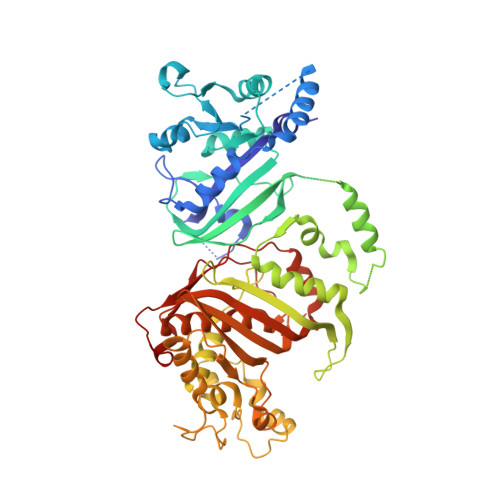Novel flexible biphenyl Pf DHFR inhibitors with improved antimalarial activity.
Decharuangsilp, S., Arwon, U., Sooksai, N., Rattanajak, R., Saeyang, T., Vitsupakorn, D., Vanichtanankul, J., Yuthavong, Y., Kamchonwongpaisan, S., Hoarau, M.(2024) RSC Med Chem 15: 2496-2507
- PubMed: 39026651
- DOI: https://doi.org/10.1039/d4md00197d
- Primary Citation of Related Structures:
8YQ8, 8YQ9 - PubMed Abstract:
As pregnant women and young children remain the first victims of malaria worldwide, the search for new antimalarials has been focusing on compounds with a high safety profile and extended efficacy. In a previous study, a rigid biphenyl Pf DHFR inhibitor was developed by fragment-based screening, displaying sub nM enzyme inhibition but poor antiparasitic activity, presumably due to its low flexibility. Here, we report a new series of compounds that combines the biphenyl fragment with a flexible linker. Interestingly, their mode of binding differs from previously reported compounds, taking advantage of strong hydrophobic interaction. The new flexible biphenyl compounds show overall improved antiparasitic activity compared to rigid ones, with the best compound displaying a 2 nM antiplasmodial IC 50 and suitable drug-like properties. This confirms the importance of compound flexibility for antimalarial activity and opens the way to new opportunities for antimalarial drug design.
- National Center for Genetic Engineering and Biotechnology (BIOTEC), National Science and Technology Development Agency Pathum Thani 12120 Thailand marie.hoa@biotec.or.th.
Organizational Affiliation:



















